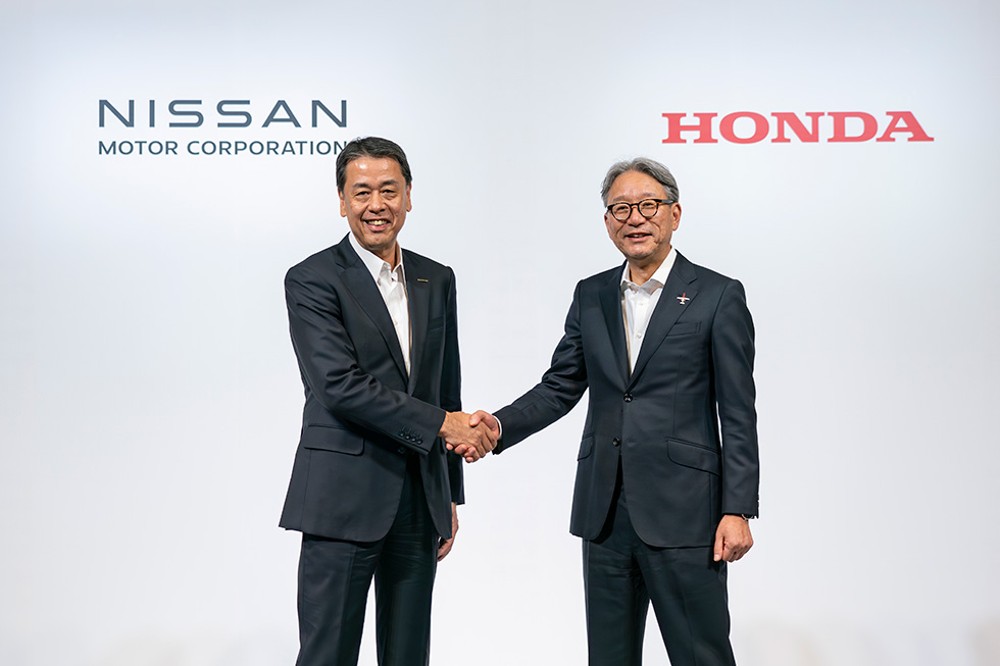Honda’s and Nissan’s merger talks could stall
According to Japanese media reports, Honda wants to make Nissan a subsidiary instead of establishing a new joint holding company with the latter as an equal partner. The move would cause Nissan to lose control of its management, which the carmaker wants to avoid.
Reuters reports that, according to a Nissan spokesperson, discussions were still ongoing and “that there would be an announcement after they finalised their direction in mid-February, as previously announced.” However, an unnamed Nissan executive told Forbes: “It is almost impossible to meet the conditions acceptable to the shareholders of both sides. It no longer seems possible to merge.”
The two carmakers officially confirmed merger talks at the end of last year, saying they had signed a letter of intent to hold talks on a “business integration” by establishing a joint holding company. The idea was that both carmakers would become 100 per cent subsidiaries of the new holding company, but nevertheless continue to operate their own brands alongside each other and develop them “equally.”
If successful, the merger would create the third-largest car company in the world (in terms of unit sales), with only Toyota and the Volkswagen Group being larger. However, it was clear from the start that the merger was not a done deal. For instance, one of Honda’s conditions is that Nissan improves its performance. Specifically, the carmaker stated that Nissan must complete its “turnaround actions.”
It is not clear at this point how or if a merger is still on the table. The initial plan was to sign a final agreement on the company integration in June 2025 and complete the necessary share transfers in August 2026 – subject to the approval of the Annual General Meetings and obtaining the necessary authorisations.
Regardless, it seems that the two carmakers will not abandon earlier cooperation plans on software-defined electric cars. According to an interim status report from August 2024, batteries and e-axles, among other things, will become the main areas of intensified cooperation.





0 Comments